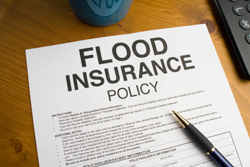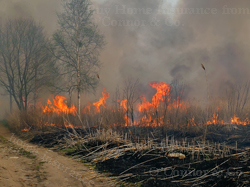Bundling your home and auto insurance can save you money.
Bundling (combining) your auto and home insurance policies together with the same Insurance Company and Agent can be one of the best ways to save money on Insurance costs. In fact, bundling policies provides one the highest discounts available, on both policies.
together with the same Insurance Company and Agent can be one of the best ways to save money on Insurance costs. In fact, bundling policies provides one the highest discounts available, on both policies.
The reason that insurance companies give their best discounts to their customers who have multiple policies is that it is the easiest way they have to attract and keep new business. A customer who is saving hundreds of dollars by keeping all of their policies with the same insurance company is more likely to move their business to qualify for the savings and much less likely leave(once they have the discount in place). Insurance companies are always looking for ways to acquire additional business, that doesn’t cost them a lot of time, effort, or money to keep. It is just that simple and keeping business simple means savings to the insurance company as well as you, the customer!
For the customer, there are several additional benefits besides saving a money. Customers get the convenience of having all of their policies with one Agent and that means being able to deal with the same individual on a consistent basis. This often means just one bill to pay, making monthly budgeting a lot easier. In the event of an Claim emergency or disaster, having all of your policies together with the same agent or company means peace of mind and, once again, that comes from dealing with the same individuals that you have a strong relationship with. Some companies will even assign the same adjuster to all of your policies. In the event that you have to claim on multiple policies, this can make life a lot easier since you will not have multiple insurance companies trying to get the other one to pay out on your claims.
Keeping your car and home insurance with the same agent and company is a great idea for people living in Dudley MA, Webster MA and Oxford, MA areas. It allows these customers to save money and simplify their lives.
Brush fire safety tips from O’Connor Insurance
100’s of Brush fires occurs every year across the Commonwealth. You do not have to live in dry, mountain regions of the West to be threatened by Brush Fires. A Brush Fire only needs the right conditions and fuel to become a wild fire. Dry weather, high winds, and trees or brush substantially increase the chances of an uncontrolled fire. Even areas like ours in Central Massachusetts can be at risk for Brush Fire, especially during dry, windy periods.
The time to protect your family from a brush fire is before a fire starts. O’Connor & Co. Insurance Agency from Dudley MA, offers some Brush Fire safety tips for residents of Massachusetts. These tips can help those with a house in or near wooded areas or brush to make their homes less susceptible to damage from a Brush Fire or wildfire.
Prevention Measures
Preventing a Brush Fire from reaching your home may not be foolproof, but it can dramatically reduce the chances that your home will be destroyed from a Brush Fire. These tips also help to keep home fires from becoming Brush or Wild Fires by creating a barrier between the woods and your home.
Remove large areas of brush, leaf piles, and woodpiles from a 30 to 100-foot radius around your home. Keep matches away from children and teach them about fire danger. Use only roofing and siding material on your home which is fire-resistant. Keep trees and bushes on your lot trimmed, and have dead trees removed immediately. Do not store flammable materials within 15 feet of chimneys, barbecue grills, or propane tanks.
Plan for a Brush Fire
A little bit of planning before you burn brush could help firefighters battle a Brush Fire near your home. It may never be needed, but you will be glad you took the time to put these measures into place if it is.
Make sure your driveway is free of impediments so that a firetruck can reach your property if necessary. Keep a shovel, rake, bucket, and an ax or saw on hand while you are burning.Have a ladder to reach the roof ready and accessible. Make sure your hose is long enough to reach the immediate area where you are burning. Only burn during the legal time period established by your local fire department and obtain all the necessary burning permits required in your town. Make sure you have smoke detectors in every bedroom and floor of your home, and test them prior to burning and monthly thereafter. Take photographs of all your valuables and keep a record of them in a fireproof safe to make filing a claim with your insurance company easier.
When a Brush Fire is in the Area
Sometimes, no matter how much planning you do, brush and wildfires may still appear in the area and threaten your home. If you are told to wait in place until an evacuation order is given, do it. If you try to evacuate too soon, you could get in the way of firetrucks on the road.
While waiting to be told to leave prepare your home. Wet the roof and landscape plants around your home to make them less likely to catch fire. Shut off the power and gas to your home and turn off any propane tanks outside. Push wood furniture inside your home to the center of each room, as far from exterior walls and windows as possible. Gather your family and pets together with a disaster kit into a single room to make finding everyone easier when the evacuation order is given. All your family members should know how to contact each other if you become separated.
Living near the tranquility of nature comes at the price of being in proximity to Brush and wild Fires, but if you prepare your home and family with these Massachusetts wild and brush fire tips, you can substantially reduce the potential for damage to your house or harm to your family members.
Wood and pellet stove safety tips.
Does anyone remember the winter of 2010? The record snowfalls, the treacherous commute to work, the repeated cancellations of school, the ice dams, the leaking roofs and on and on and on.
Well, Old Man Winter is suiting up again, and with a chilly weekend forecast, it reminds us that the Old Man never really gets old and tired. For some reason, he never forgets to stop by each year for a visit, sometimes longer than most would like to see him.
One of the best and least expensive ways to take the chill out of winter and save money heating your home is a wood and pellet stove. At O’Connor & Co. Insurance your safety is what keeps us warm. We’ve put a list together of safety tips and great links to keep you and your family protected from accident and traumatic loss.
- Check Your Hotspots: The USFA believes in educating people how to recognize some of the hazards to help prevent wood stove mistakes. Click here for more information.
- Teach your children the value of wood stove safety. Click on this link for a great for children
- Creosote buildup in the fireplace can lead to danger. Click on link for more information.
Leading causes of house fires and tips for your items in your home.
Fires can be a devastating event and all of us at O’Connor & Co. Insurance we hope you never have to experience such a traumatic event.
We at O’Connor have compiled a list of some of the leading causes to home fires. We hope this blog will help you take some extra precautions.
The latest reported figures, accidents attributed to cooking generated more residential fires more than any other known cause. The leading cause of residential fire deaths is careless smoking.
We also provide a link to a free home inventory checklist at the bottom of this page.
Some of causes of reported fires include:
- Cooking 20%
- Unknown 18%
- Heating 15%
- Suspicious Causes (arson) 11%
- Appliances 8%
- Smoking 5%
- Open Flame 5%
- Children Playing 4%
- Other 4%
- Exposure 3%
3 Tips for inventorying for your home.
- Take a video camera through your home and verbally describing all the items in your home.
- Take pictures with a time stamp on the image. On the back of the image, list the value, serial number, make and model number. If you’re storing it electronically, name the pictures and reference the description.
- If you have an iPhone® download a free app from the National Association of Insurance Commissioners, myHOME Scr.APP.book app. It guides you through capturing images, writing descriptions, saving bar codes and serial numbers, and stores them all electronically.
Are you eligible for affordable flood insurance?
The wild weather this year through the United States, ranging from  hurricanes, tornadoes, snow storms and long periods of rain have caused havoc throughout the Northeast in particular. At times, you might feel like an ark might be a good investment. We have received a lot of questions from our customers about flood insurance and if their homeowner’s policy covers flooding. We hope these questions can be answered and we welcome your phone calls at O’Connor & Co. Insurance. Feel free to call us with any questions at 508-943-3333.
hurricanes, tornadoes, snow storms and long periods of rain have caused havoc throughout the Northeast in particular. At times, you might feel like an ark might be a good investment. We have received a lot of questions from our customers about flood insurance and if their homeowner’s policy covers flooding. We hope these questions can be answered and we welcome your phone calls at O’Connor & Co. Insurance. Feel free to call us with any questions at 508-943-3333.
Does My Homeowners Policy Cover Flooding?
- Flood damage is not covered by homeowner’s insurance policies. You can protect your home, business, and belongings with flood insurance. You can insure your home for up to $250,000 for the building and up to $100,000 for the contents.
Who Can Get Flood Insurance?
- Anyone can get flooded, and anyone can get flood insurance. Even if you have been flooded before, live in a flood zone, or if your flood risk is high, medium, or low, you can purchase flood insurance if your community participates in the NFIP.
Is Flood Insurance Affordable?
- The average flood insurance policy costs a little more than $300 a year for about $100,000 of coverage. A policy for a dwelling in low- to moderate-risk areas may be as low as $100 a year.
Is There a Waiting Period For Flood Insurance?
- Yes, there is a 30-day waiting period before a flood insurance policy becomes effective. You can purchase flood coverage at any time, but there is a 30-day waiting period after you have applied and paid the premium before the policy becomes effective.
Is Flood Insurance Less Expensive Than A Disaster Loan?
- Insurance is less expensive than federal disaster loans. Average annual premiums for NFIP coverage are significantly less than loan payments, even though those loans are granted under favorable terms.
Fire Prevention Week October 7-13 2012. Some home safety tips for you.
Fire Prevention week is October 7 – 13, 2012
O’Connor & Co. Insurance would like to pass on these safety tips to you. Fire prevention is the best insurance to you and your families safety. Below is a list of fire safety tips and proper installation and maintenance of smoke alarms.
- Make sure you install smoke alarms in every bedroom, best location for these are outside or each separate sleeping area and on every level of the home, including the basement. Make sure the smoke alarms interconnect throughout the property. If one alarm sounds off, they all go off.
- For the best protection, both types of alarms or a combination alarm (photoelectric and ionization) should be installed in homes. An ionization smoke alarm is generally more responsive to flaming fires, and a photoelectric smoke alarm is generally more responsive to smoldering fires.
- Make it a habit to test each alarm at least monthy by using the test button.
- Remember smoke rises; follow the manufacturer’s instructions and install smoke alarms high on a wall or on a ceiling.
- If the alarm “chirps”, that is a warnign that the battery is low, replace it right away. It is best to replace the batteries once a year.
- Smoke alarms do not last forever and it is suggested to replace all smoke alarms, including alarms that use 10-year batteries and hard-wired alarms, when they are 10 year old or sooner if they do not respond properly.
- Be sure the smoke alarm has the label of a recognized testing laboratory.
- Alarms that are hard-wired (and include battery backup) must be installed by a qualified electrician.
- If cooking fumes or steam sets off nuisance alarms, replace the alarm with an alarm that has a “hush” button. A “hush” button will reduce the alarm’s sensitivity for a short period of time.
- An ionization alarm with a hush button or a photoelectric alarm should be used if the alarm is within 20 feet of a cooking appliance.
- Smoke alarms that include a recordable voice announcement in addition to the usual alarm sound, may be helpful in waking children through the use of a familiar voice.
- Smoke alarms are available for people who are deaf or hard of hearing. These devices use strobe lights. Vibration devices can be added to these alarms
- Smoke alarms are an important part of a home fire escape plan.
information provided by The National Fire Protection Association
Watch a video on Fire Prevention
Video Source: Insurance Information Institute – http://www.iii.org.

